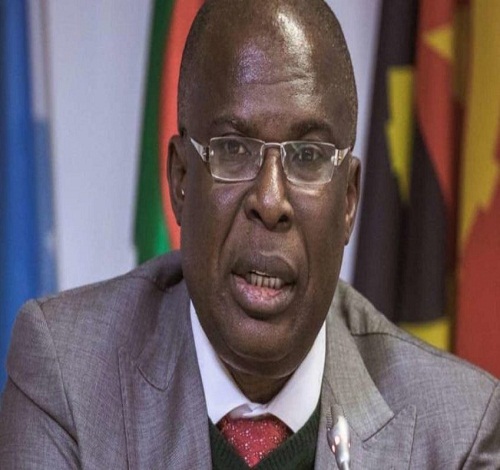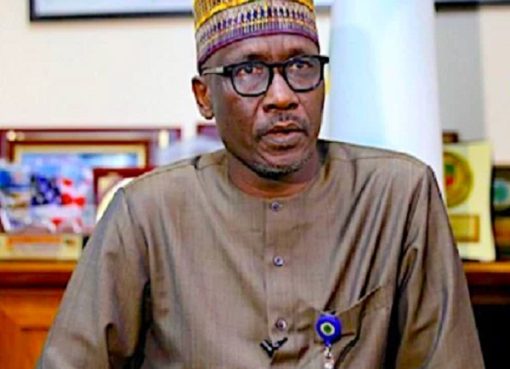Despite being one of the most volatile sectors in terms of maintaining good industrial relations, Minister of State, Petroleum, Chief Timipre Sylva, has intervened in critical times to ensure harmony in the country’s oil and gas sector.
HEAT AND HARMONY
To start with, not a few Nigerians expected some kind of implosion likely caused by aggrieved workers who would feel short-changed during the recent changes in the Nigerian oil and gas industry brought about by the Petroleum Industry Act (PIA).
At the time, a number of agencies were merged and there was need to reshuffle some positions occupied by staff of major government organisations within the sector. So, it wasn’t out of place to predict that workers’ protest would follow and then subsequently grounding of official activities.
But even if there were such forecasts, they never came to pass, most remarkably due to the deft handling of matters arising from the movement of workers and their expected remuneration. At least not till now. Not even a whimper.
The Minister of State for Petroleum Resources, Chief Timipre Sylva had pointedly told the employees affected that no job will be lost in the nation’s petroleum sector following the signing of the PIA into law.
In any case, the fears of industrial disharmony was real given patterns that had been observed for years, but the minister maintained that the move would instead create more jobs.
“We have already made provisions in the law to ensure that no job is lost in the oil industry as a result of the PIA. So, no job will be lost as a result of the PIA. All jobs in the petroleum industry will be intact.
“That was already taken into account. We discussed with labour extensively in the process of drafting the bill,” he said at the time. And true to his promise , there’s no information in the public space that there was any casualty as far as the restructuring of agencies and parastatals are concerned.
Not long after, was the three-day strike scheduled to be commenced by the Petroleum and Natural Gas Senior Staff Association of Nigeria (PENGASSAN). No sooner than the news got to the media than the minister knowing the implication of such an action, swung into action.
Before the strike materialised, it was then immediately suspended by the General Secretary, PENGASSAN Lumumba Okugbawa, after a thorough engagement with the minister on the matter.
Specifically, Okugbawa said the decision to suspend the strike action followed the intervention of the minister who did everything to ensure that the matter was resolved.
The action which was suspended had to do with the alleged forceful enrolment of the oil workers into what they called “defective payment platform (the integrated Payroll and Personnel Information System (lPPlS)” by the federal government.
EXXONMOBIL VS OMO-OJO
However, in recent times, the icing on the cake was when the Sylva who appears not to be resting on his oars in ensuring industrial peace, delved into a case which was a bit complex because the parties involved were not directly under his purview, as it were.
On May 3, 2021, Mr Ernest Omo–Ojo, an employee of Mobil Producing Nigeria Unlimited, a subsidiary of ExxonMobil petitioned the office of the minister of state, soliciting his intervention and that of the ministry over what he referred to as the unjust termination of his appointment.
Omo-Ojo insisted that the action was in flagrant violation of the regulatory guidelines enshrined in the amended oil and gas industry regulation on release of staff. He probably had his doubts, but given the minister’s antecedents, it must have given him some hope.
He wasn’t wrong after all. True to his conviction and belief, after receiving the complaint, the minister directed the permanent secretary of the ministry of petroleum resources to set up a committee to look into the petition.
Accordingly, the Permanent Secretary, constituted a three-man committee made up of the then Director in charge of Human Resources Management, Dr Famous Eseduwo, as the Chairman and the Director Upstream Department, Kamoru Busari as the Secretary, while the Director of Legal Services, served as a member.
It was learnt that the mandate of the committee was to critically review the petition from both ends, that is, hear from the complainant, Omo-ojo and his former employer, ExxonMobil and come up with appropriate recommendations to enable the management take an informed decision on the matter.
Having held meetings with all the concerned parties, it was learnt that the committee discovered in the course of the sittings that one of the regulations of the defunct Department for Petroleum Resources, (DPR) which provided that any Joint Venture (JV) company that initiates a disengagement process against its employee must forward it to the minister for approval, was breached by ExxonMobil.
Similarly, it was established that the complainant, by his action, breached an aspect of the company’s policy which led to his disengagement from ExxonMobil.
The committee, THISDAY learnt, recommended that the minister and indeed the ministry should advise ExxonMobil to consider the option of compulsory retirement instead of the outright termination of Omo-Ojo’s appointment.
The recommendation of the committee was approved by the ministry and subsequently on February 4, 2022, it urged Mobil Producing Nigeria Limited to commute the termination of the complainant’s employment to retirement.
Furthermore, the company wasted no time, but disposed the matter in line with the ministry of petroleum resources’ advice.
“ExxonMobil has since accepted the minister’s directive and complied by withdrawing the termination letter issued on June 14, 2019, and issued me with a retirement letter,” Omo-Ojo said after the matter was resolved.
The amicable settlement of the matter underscored the resolve of the ministry and the minister that the personnel employed by the multinational companies in the oil and gas sector are not treated with disdain, one source at the ministry said.
COMMITTEE MEMBERS SPEAK
Speaking on the matter, the Director Upstream, Kamoru Busari, who served as the Secretary to the committee that investigated the case of Omo–Ojo, said he was fulfilled that he could assist in resolving the matter which put the complainant in a good stead in the end.
“I felt proud and fulfilled as an administrator to be part of the team that resolved the matter. More so, that it was a case of arbitration and an oil giant like ExxonMobil was prevailed upon to rescind its decision to sack Omo–Ojo and commute it to retirement.
“Surely, Omo-Ojo being the complainant put enormous pressure on the members of the committee as he was prevailed upon to withdraw the matter from the Industrial Court. However, we continually gave him hope until the matter was amicably resolved,” Busari said.
He also advised anyone who feels short-changed or aggrieved with any government system to be patient enough and believe in the ability of government institutions in enforcing the law.
“Ensure you follow laid down procedures in the law or regulations to solve all conflicts. However, arbitration such as the case of Omo-Ojo is highly recommended,” he added.
“People should have confidence in the capability of the institutions to come to their aid whenever they report such cases,” the Director stressed.
Also in his remarks, the then Director, Human Resources Management, Eseduwo admitted that the defunct DPR did not properly play its role as a regulatory agency between the Ministry of Petroleum Resources and the Multinational Oil Company (MOC), ExxonMobil, towards protecting Nigerians working with the MOCs in the Nigeria’s oil and gas industry.
He confirmed that the Minister of State for Petroleum was provided with insufficient information and incompetent advice earlier to act on the matter.
“ExxonMobil acted in consonance with its internal rules in aberration of the federal government’s regulations on the disciplinary process of an erring Nigerian employee in MOCs.
“There was no equilibrium between technical and political rationality in the matter, ab initio, and it was the above missing links that my committee interrogated.
“ It’s important that people should get themselves acquainted with the MOCs’ extant service rules and be conscious of the rules, so they won’t be caught up with them,” he stated.
He confirmed that the ExxonMobil’s earlier decision on Omo-Ojo in terminating his appointment was annulled by the ministry of petroleum resources not on the grounds of lack of merit, but for breach of due process.
“Again, extant court judgments against such MOC decisions on their Nigerian employees are the consequences of taking haphazard decisions on workers as well as incurring avoidable financial implications,” he explained.










